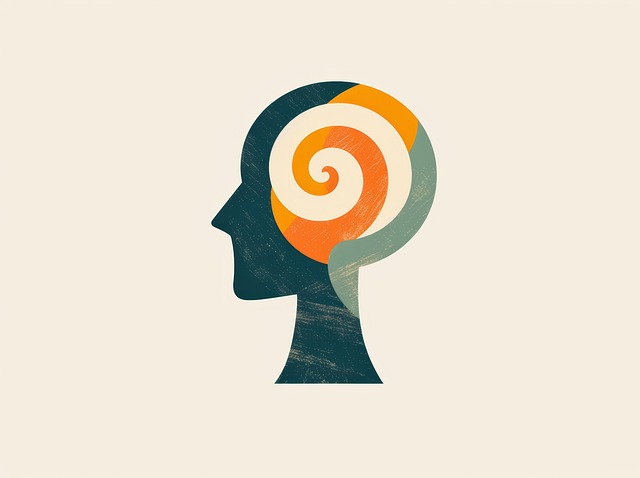Identifying risks specific to elderly patients with eating disorders is crucial for mental health professionals. Age-related challenges like changes in metabolism, reduced mobility, and social isolation can contribute to or exacerbate eating disorders. Effective therapy requires tailored strategies addressing physical health, cognitive function, and social connections. Educational content from the Mental Wellness Podcast Series Production, combined with burnout prevention strategies, improves outcomes. Well-designed mental health education programs equip professionals to navigate these complexities, ensuring better support for elderly individuals struggling with eating disorders, facilitating meaningful recovery and enhancing quality of life.
In the realm of mental health, treating elderly patients with eating disorders presents unique challenges. This article delves into the specific risks these individuals face, highlighting comorbidity rates and their impact on treatment planning. We explore evidence-based risk assessment tools tailored for this vulnerable population, emphasizing cultural sensitivity and history integration. Furthermore, we offer comprehensive strategies for risk management, focusing on mitigating risks during therapy sessions and fostering resilience through coping mechanisms. Understanding these nuances is vital for professionals aiming to provide effective therapy for elders experiencing eating disorders.
- Identifying Risks Specific to Elderly Patients with Eating Disorders
- – Unique challenges and considerations when treating elderly individuals with eating disorders
- – Comorbidity rates and the impact on treatment planning
Identifying Risks Specific to Elderly Patients with Eating Disorders

Identifying risks specific to elderly patients with eating disorders is a critical aspect of risk assessment for mental health professionals. As individuals age, they may face unique challenges that contribute to or exacerbate eating disorders. These include changes in metabolism, reduced mobility, and social isolation, which can lead to a distorted body image and decreased appetite. Healthcare providers must be attuned to these nuances, as traditional approaches to treatment might not always be effective.
Therapy for elders with eating disorders requires tailored strategies that address the interwoven issues of physical health, cognitive function, and social connections. Incorporating elements from the Mental Wellness Podcast Series Production can offer engaging educational content to both patients and caregivers, fostering a deeper understanding of the disorder and available support systems. Additionally, Burnout Prevention Strategies for Healthcare Providers are essential, as caring for this vulnerable population can be emotionally taxing. Well-designed Mental Health Education Programs can equip professionals with the necessary tools to navigate these complexities, ensuring better outcomes for elderly individuals struggling with eating disorders.
– Unique challenges and considerations when treating elderly individuals with eating disorders

Treating elderly individuals with eating disorders presents unique challenges for mental health professionals. As age can bring about changes in physical and cognitive function, it’s crucial to consider how these factors might impact an individual’s relationship with food and their overall emotional well-being. For example, sensory impairments or reduced mobility can make mealtimes more challenging, leading to avoidance or anxiety around eating. Additionally, cultural shifts and societal expectations regarding body image can significantly influence an elderly person’s disordered eating patterns. Professionals must be adept at navigating these complexities, tailoring therapy for elders with eating disorders accordingly.
Effective therapy for elders requires a multifaceted approach that addresses both the physical and psychological aspects of eating disorders. Stress reduction methods and emotional regulation techniques are essential tools in helping this demographic develop healthier coping mechanisms. Incorporating activities that promote mental wellness, such as tailored exercises or engaging hobbies, can also be beneficial. Moreover, considering the potential impact of age-related stressors like loneliness or isolation on an individual’s disordered eating, professionals must explore these underlying issues to facilitate meaningful recovery and enhance overall quality of life.
– Comorbidity rates and the impact on treatment planning

Comorbidity—the presence of two or more concurrent mental health disorders—is a significant challenge for mental health professionals working with older adults. Given that older populations often present with complex psychological issues, comorbidity rates can be quite high, complicating treatment planning and outcome predictions. For instance, the coexistence of eating disorders and other conditions like depression or anxiety is not uncommon among elders. This dual diagnosis necessitates a multifaceted approach to therapy, incorporating tailored interventions for both primary and secondary disorders.
Treatment plans should address the unique needs of this demographic, focusing on evidence-based practices such as stress reduction methods, emotional regulation techniques, and compassion cultivation exercises. Tailoring therapeutic strategies to account for comorbidity can enhance treatment efficacy, ultimately improving quality of life outcomes for older adults suffering from these complex conditions, including those with eating disorders.
Mental health professionals navigating therapy for elders with eating disorders face unique challenges, including comorbid conditions that require tailored treatment plans. Understanding these specific risks is crucial for effective care, ensuring a holistic approach that addresses both the eating disorder and any accompanying mental health issues. By recognizing and addressing these complexities, professionals can provide specialized support, enhancing outcomes for this vulnerable population. This targeted risk assessment serves as a vital step in revolutionizing the approach to treating elderly individuals with eating disorders.









